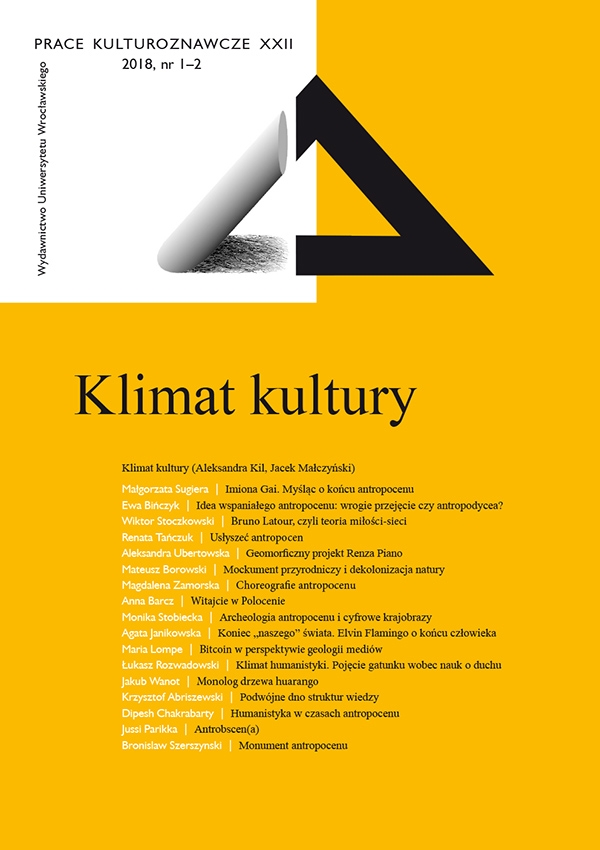

Na warsztacie

The climate of humanities:Human species and the Geisteswissenschaften
Dipesh Chakrabarty in the article The Climate of History: Four Thesis claims that in the era of the Anthropocene human symbolic creations, including institutions and economic systems, have to be interpreted in relation to natural history if their impact on climate changes is to be understandable. The category of species could be helpful, though it overstrains human capacity for self-understanding. Consequently, the distinction between natural history and human history collapses. Referring to works by E. Husserl, I introduce a different distinction. History of institutions and natural history belongs to objective natural science. What really cannot be brought together with that kind of discipline of history is self-understanding, „the science of the spirit” — humanities. I point out the crisis of thinking subjectivity, destructive for humanities, giving an example of the war on gender, where conservatives defend religious norms with quasi-natural science arguments. Using works by G. Agamben and M. Henry, I phenomenologically elucidate the notion of „life” as the radical immanence. Life explodes all taxonomical frames in which it could be included and opens up a field of action for humanities. Only humanities focusing on subjectivity could ask about presently living on the Earth people’s strength to face the challenges of the Anthropocene.